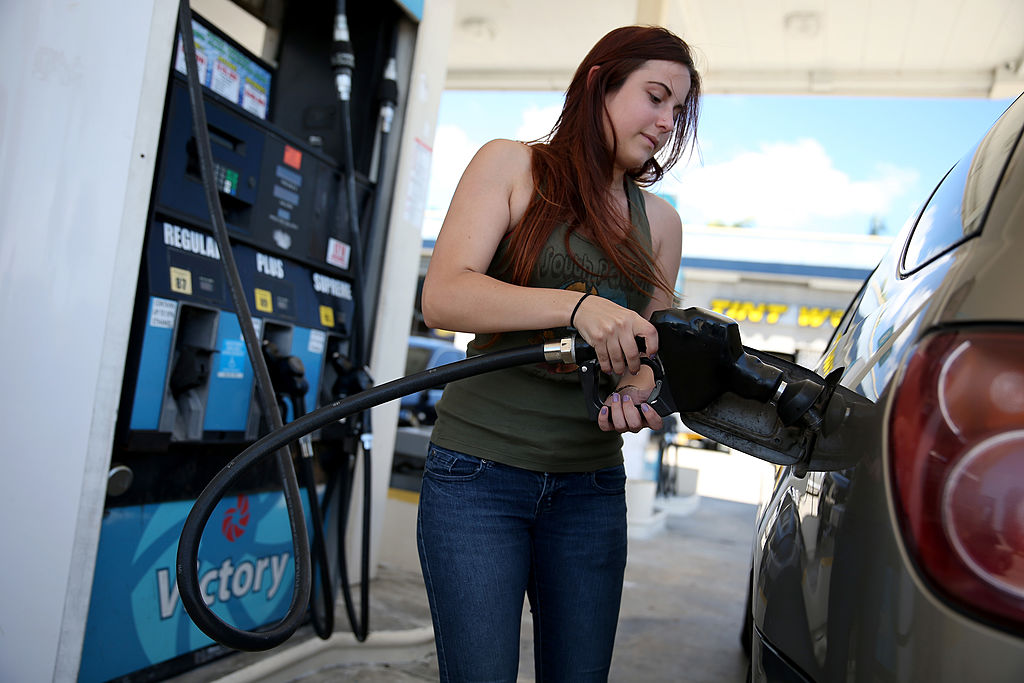

Gas stations take the hit when prices rise, and that’s when they especially hate the credit card fee, because they’re turning over a large percentage of their cut to card companies.The cheapest gas in your area may not always be at the same station, so it’s to your advantage to search out the best price. Most gas stations buy from their proprietary company, so they don’t have the luxury of shopping around. Related: Which Day of the Week Is the Cheapest to Get Gas? Start learning the tips about what gas stations don’t want you to know. What are the best deals at gas station convenience stores?.What’s the best way to pay at the pump: Debit? Credit? Gas card?.

Are all gas brands alike, or do some maintain better quality that can affect a car’s performance than others?.Surprise, surprise: It turns out that for-profit entities like gas stations, oil companies, credit card companies and a host of others may not have your best interest in mind. Earlier this year, the Motor Fuel Group (MFG), the UK’s largest independent forecourt operator announced that they will remove auto-LPG from all their forecourts by - MSN Money recently compiled a list of 10 things that could potentially save you money next time you go to the gas station. So, bear in mind that if you opt for an LPG vehicle, you’ll have to plan journeys a little more carefully.Īlthough there is a relatively widespread concentration of LPG stations throughout the UK, availability falls a little short of the public’s needs and is now dwindling. At present, 368 UK fuelling stations offer LPG for public sale (just 4% of the total number), whereas petrol and diesel fuel are available everywhere. LPG fuel’s limited availability also presents a challenge for its users. It’s highly efficient, better for the environment than premium fuels, but not every car is equipped to run on it. It’s cheaper than regular petrol and diesel, but cars need to be specifically converted to run on the gas. LPG stands for ‘Liquefied Petroleum Gas’, and is made of propane and butane. And, as diesel is more expensive than petrol anyway, this might not be the best economical option. If not, then you probably won’t notice too much of a difference when using premium diesel and it’s considerably more expensive at the pump. Premium diesel is only really worthwhile if a vehicle has had the chance to accumulate sediments within the engine.
#Synergy gas really good for your car drivers
Some drivers report that it has also contributed to a cleaner Diesel Particulate Filter (DPF) with fewer warnings and issues, but this isn’t scientifically proven. This may be more noticeable with older or higher mileage vehicles than with brand-new cars that haven't yet had time to develop engine build-up. Premium diesel might help your engine to run smoother and cleaner, which can improve performance and economy with regular use. Instead, premium diesel features chemicals in its mixture that are designed to shift soot deposits and other build-up from the engine’s fuel system.

Premium diesel, unlike premium petrol, doesn’t usually feature a higher octane rating, as diesel engines don’t ignite fuel to create power. Premium fuel also costs considerably more than standard petrol, so you’ll find yourself more out of pocket when filling up.

There isn’t any physical proof or research to show the benefits of premium petrol, apart from the claims made by those who produce them. The only cars that really need premium petrol are high-performance vehicles.
#Synergy gas really good for your car full
Older vehicles in particular might benefit from additional cleaning with premium fuels – using premium petrol for a couple of full tanks can create a cleaner, more efficiently running engine. Premium petrol can also help to reduce friction, resulting in cleaner engine components and a more efficient performance. Unleaded premium fuel has an octane rating which shows how well the fuel resists pressure and premature ignition. One of the main advantages of premium petrol is that it has an official rating. Standard petrol usually has a RON of 95, whereas premium petrol has a higher RON of around 97 – in some cases, reaching up to 100. Octane is one of the chemical components within petrol, and the amount of octane in the fuel will affect how well the petrol will work in higher compression engines. Premium performance petrol, also known as super fuel, is petrol that has a higher Research Octane Number (RON).


 0 kommentar(er)
0 kommentar(er)
